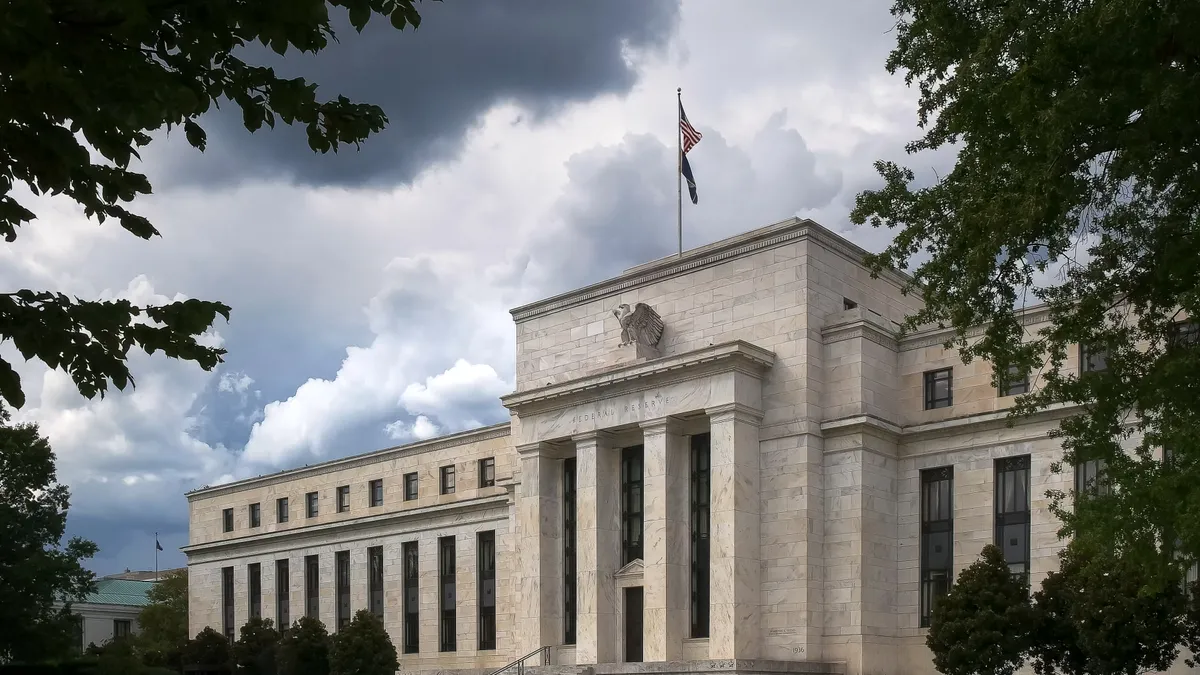The Federal Reserve Board banned five former bankers from future work in the industry this week after it said they submitted fraudulent applications for COVID-19 aid and used the funds for unauthorized personal expenses.
Two of the bankers worked for Ally Bank, and one each was employed at Regions Bank, First Horizon Bank and Bank of America’s Merrill Lynch.
Lexus Clark, a Jacksonville, Florida-based former customer solutions representative for Ally, obtained a $112,500 Economic Injury Disaster Loan (EIDL) and a $20,833 Paycheck Protection Program (PPP) loan between September 2020 and March 2021, the Fed said.
Arneita Glenn, also a Jacksonville-based former Ally customer solutions representative, obtained two separate $19,000 PPP loans in March and April 2021, the Fed said.
Carmen Peña, a Miami-based former senior relationship banker for First Horizon, obtained a $91,500 EIDL and a $10,000 grant in 2020, the Fed said. Peña eventually repaid $92,611 to the Small Business Administration (SBA), according to the central bank.
Erica McRae, an Atlanta-based former financial relationship consultant for Regions, obtained EIDLs of $36,500 and $24,000 and a $6,000 grant between June and September 2020, the Fed said.
Evelyn Batista, a Montvale, New Jersey-based former financial adviser for Merrill Lynch Wealth Management, obtained a $17,500 EIDL in July 2020, the Fed said. She repaid the loan to the SBA with interest, the central bank said.
The banned bankers neither admitted nor denied the conduct, the Fed said. And each agreed not to participate in future banking activity or risk criminal or civil penalties.
The Fed has intermittently issued bans on individual bankers embroiled in PPP and EIDL-related fraud. The central bank banned four former Regions employees and two ex-Merrill Lynch workers on similar charges in April. The size of the loans connected to Tuesday’s enforcement actions, which the Fed announced Thursday, is markedly larger.
Lawmakers and government watchdogs alike have chastised the SBA for the amount of fraud linked to early COVID-era programs. At least 10% of PPP and EIDL applicants may have obtained loans “that were inconsistent with income eligibility requirements,” Justice Department Inspector General Michael Horowitz told Congress in June.
“The Small Business Administration, in sending that money out, basically said to people, ‘Apply and sign and tell us that you’re really entitled to the money,’” Horowitz told NBC in March. “What didn’t happen was even minimal checks to make sure that the money was getting to the right people at the right time.”
Rep. Blaine Luetkemeyer, R-MO, in April introduced a bill meant to usher in more accountability and oversight of the SBA, which he said is “fraught with fraud, delays, and mismanagement.”
Other legislation has aimed to ensure COVID-related fraud doesn’t age out of the system. A bill President Joe Biden signed in August extends to 10 years the statute of limitations for wire fraud charges in connection with PPP loan applications involving nonbanks. Prosecutors already have a 10-year time frame to file federal bank fraud charges. A second bill Biden signed gives prosecutors 10 years to file fraud charges connected to EIDL applications.
Banks, too, have begun settling cases involving COVID lending errors. Houston-based Prosperity Bank last month agreed to pay more than $18,000 to resolve allegations from the Justice Department that it knowingly processed a PPP loan for an ineligible business.













